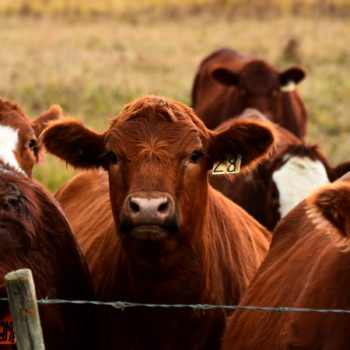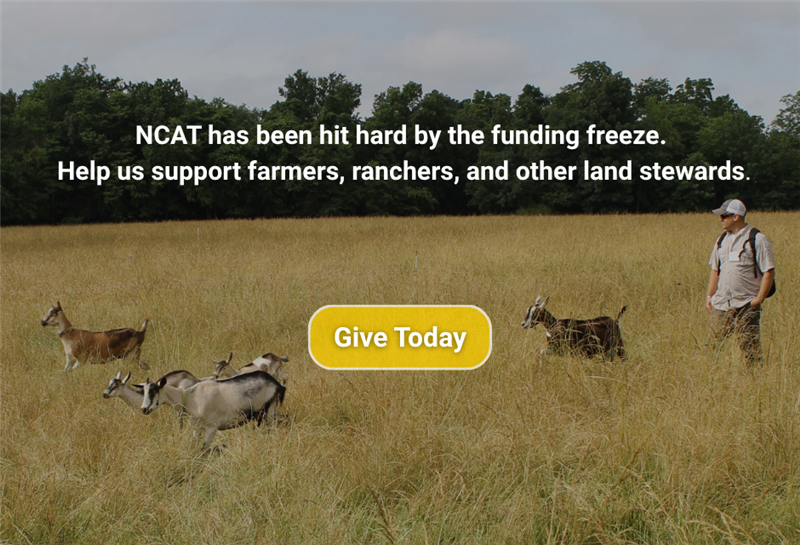Preparing a Resilient Future
 Being a certified organic small grains and livestock farmer or rancher is a significant challenge in the semi-arid dryland cropping and grazing lands of the northern Grain Plains. Programs that help beginning farmers tend to focus on organic specialty crops like fruits, vegetables, tree nuts, and flowers. Only about 25% of USDA Beginning Farmers and Ranchers Development (BFRD) programs train and educate beginning farmers to focus on commodity field crops such as, wheat, barley, lentils, chickpeas, dry peas and beans, oilseeds, and livestock.
Being a certified organic small grains and livestock farmer or rancher is a significant challenge in the semi-arid dryland cropping and grazing lands of the northern Grain Plains. Programs that help beginning farmers tend to focus on organic specialty crops like fruits, vegetables, tree nuts, and flowers. Only about 25% of USDA Beginning Farmers and Ranchers Development (BFRD) programs train and educate beginning farmers to focus on commodity field crops such as, wheat, barley, lentils, chickpeas, dry peas and beans, oilseeds, and livestock.
The National Center for Appropriate Technology is leading a regional partnership, funded through the USDA BFRD program, to help more than 300 beginning farmers and ranchers across the Northern Great Plains explore the value, viability, and resilience of raising organic field crops.
The Montana Organic Association, Northern Plains Sustainable Agriculture Society, Center for Rural Affairs, the Intertribal Agriculture Council, Nebraska Sustainable Agriculture Society, International Organic Inspectors Association, North Dakota State, and University of Wyoming are providing a supporting role to this effort.
Unlike most programs focused on beginning farmers and ranchers, this project targets medium to large-scale field crop and livestock operations. This project is unique in that it will help beginning farmers and ranchers fully explore the economic and productive viability of organic systems in this region. We also will open this exploration to the communities of this vast region. Specifically, NCAT and several partner organizations will present a total of 10 Organic Academy Roadshows (OARS) over the next two years in the states of Montana, North Dakota, South Dakota, Nebraska, and Wyoming. In addition, the project team will host intensive training sessions, one-on-one technical assistance, and on-farm workshops and tours.
This section is intended for beginning farmers and ranchers who have participated in the Preparing a Resilient Future project for exploring organic small grains and livestock production. You’ll find information about the project, scheduled trainings, and more.
Why Small Grains, Oilseeds, Pulses, and Livestock?
Interest in growing organic small grains and other field crops in the Northern Great Plains is on the rise, and lucrative markets for these crops are expanding.
Research shows that organic vegetable and specialty crop growers are meeting the national demand in the U.S. because there’s a net export of their products. At the same time, organically grown field crops are being imported into the U.S. at stable and sometimes increasing rates.
The Northern Great Plains is the number one organic wheat- and pulse-producing states in the country. Organic farmers and ranchers in this region are uniquely positioned to provide education as well as opportunities to meet, learn, collaborate, mentor, do business, and more.
Bringing in the Community
NCAT and the project collaborators will host intensive training sessions, one-on-one technical assistance, and on-farm workshops and tours. The training will be conducted in day and half sessions. Importantly, experienced organic farmers and ranchers are some of the lead trainers in this project.
In addition to the farmers and ranchers taking part, the sessions will include other members of their agricultural communities, including civic leaders, county Extension agents and officials from USDA agencies such as the Farm Service Administration and the Natural Resources Conservation Service.
That outreach is vital as support for the beginning farmers and ranchers and to introduce organic farming and ranching to the agricultural community in their area.
Importance of Diversity
Since 2013, NCAT has supported more than 900 military veteran farmers through its Armed to Farm intensive training programs around the country.
In addition, NCAT and the Montana Organic Association have undertaken many training workshops that have included tribal members, who make up about 2 percent of all new beginning farmers in the Northern Great Plains.
That emphasis on diversity will be reflected in the Preparing a Resilient Future project, which will include at least 50 veteran, limited-resource, tribal, and socially disadvantaged participants.


